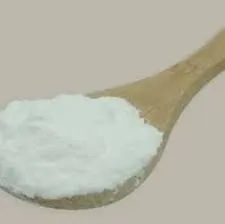The Role of Catalase, PQQ, and CoQ10 in Cellular Health
In the intricate world of cellular biochemistry, antioxidants play a pivotal role in maintaining cellular health and preventing oxidative damage. Among these antioxidants, catalase, pyrroloquinoline quinone (PQQ), and coenzyme Q10 (CoQ10) stand out for their unique contributions to cellular protection and energy metabolism. Understanding their functions and interactions can provide significant insights into their potential health benefits.
Catalase The Hydrogen Peroxide Scavenger
Catalase is an enzyme present in nearly all living organisms exposed to oxygen. Its primary role is to catalyze the decomposition of hydrogen peroxide (H2O2), a potentially harmful byproduct of various metabolic processes. Hydrogen peroxide is a reactive oxygen species (ROS) that can cause oxidative stress, leading to cell damage if not efficiently managed. By converting H2O2 into water and oxygen, catalase protects cells from oxidative damage and maintains the overall redox balance within the cell.
The activity of catalase is crucial in organs such as the liver and kidney, which are responsible for detoxifying harmful substances. A decline in catalase activity can contribute to age-related diseases, metabolic disorders, and the pathogenesis of various conditions including cancer and neurodegenerative diseases. Hence, maintaining optimal catalase activity is vital for cellular health and longevity.
PQQ The Multifaceted Antioxidant
Pyrroloquinoline quinone (PQQ) is a small quinonoid molecule that serves as a cofactor for certain bacterial enzymes and exhibits potent antioxidant properties. It plays a fundamental role in cellular energy metabolism, primarily by enhancing mitochondrial function. PQQ is known to stimulate the generation of new mitochondria (a process known as mitochondrial biogenesis), which is essential for maintaining energy levels in cells.
Research has suggested that PQQ not only protects cells from oxidative damage but also supports cognitive function. It may promote nerve growth factor (NGF) synthesis, thereby aiding in neuron health and repair. Moreover, PQQ has been studied for its potential in reducing inflammation and improving insulin sensitivity, making it a promising candidate for enhancing metabolic health.
catalase pqq coq10

CoQ10 The Energy Producer
Coenzyme Q10 (CoQ10) is another essential antioxidant that plays a critical role in cellular energy production. Found in the mitochondria, CoQ10 is integral to the electron transport chain, where it facilitates ATP (adenosine triphosphate) synthesis. ATP is the primary energy currency of the cell, powering various cellular functions, from muscle contraction to cell proliferation.
Like catalase, CoQ10 also helps neutralize free radicals, thereby protecting cellular structures from oxidative damage. CoQ10 levels naturally decline with age, and this decline has been associated with various age-related conditions, such as cardiovascular diseases and neurodegenerative disorders. Supplementing CoQ10 has been shown to improve energy levels, enhance physical performance, and may offer cardiovascular protection.
Interplay and Synergy
The interplay between catalase, PQQ, and CoQ10 underscores the importance of a multifaceted approach to protecting cellular health. Each of these molecules has its unique mechanism of action, but together they form a comprehensive defense system against oxidative stress. By effectively managing free radicals and promoting energy production, they ensure that cells function optimally even under stressful conditions.
Moreover, the combined supplementation of these antioxidants could potentially amplify their individual benefits. For instance, while catalase helps neutralize hydrogen peroxide, PQQ and CoQ10 provide energetic support for the cell, enabling robust repair mechanisms and enhanced mitochondrial function. This synergy could lead to greater longevity and improved overall health.
Conclusion
In summary, catalase, PQQ, and CoQ10 are integral players in the science of cellular health and antioxidant defense. Their unique properties not only help combat oxidative stress but also support critical cellular functions such as energy production and metabolic regulation. As research continues to uncover their potential therapeutic benefits, these compounds may well become essential components in strategies aimed at promoting health and longevity. By understanding and harnessing their synergistic effects, we can pave the way for innovative health solutions that leverage the body’s own protective mechanisms.

